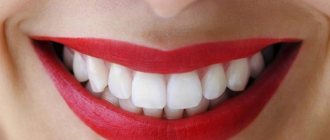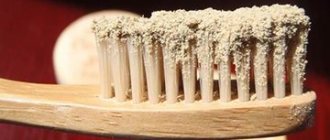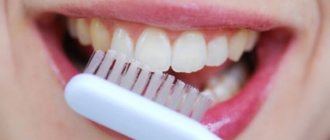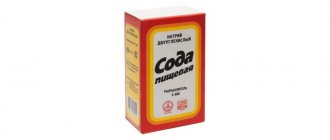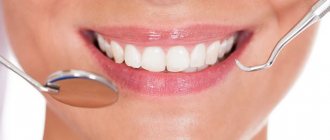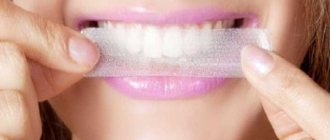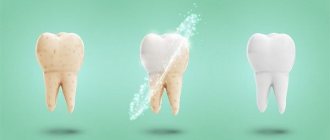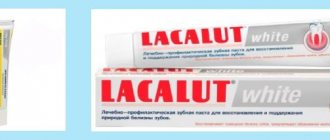Types of teeth whitening in dentistry
Professional teeth whitening involves performing procedures in a dental office and under the direct supervision of a specialist. In this case, mechanical or chemical effects may be exerted on the tooth enamel. The effectiveness of the latter can be enhanced by the penetrating ability of ultrasound, laser or light, which act as an activator and conductor for the reagent that penetrates deep into the enamel.
Today there are a number of popular whitening methods, each of which has its own advantages and disadvantages. Their descriptions will help you give preference to one or another procedure.
Contacting the Doctor Martin Clinic
In Moscow, teeth whitening is offered by the reliable dentistry “Doctor Martin”. Experienced specialists perform procedures efficiently and safely. At the initial appointment, the doctor will examine the teeth, agree with the patient on the desired enamel color and perform whitening. Each patient will leave the clinic completely satisfied with the results obtained. The pricing policy of Doctor Martin dentistry is loyal, the cost of the service is lower than in other private clinics in the city (you can find out more about the price list on the website). To sign up for the procedure, just call the phone number provided or fill out a standard form online.
Photobleaching
One of the “youngest” whitening methods. During its use, a special whitening gel is applied to the visible surface of the teeth, with a minimum concentration of hydrogen peroxide, which, under the direct influence of light emitted by a halogen lamp, is activated and penetrates deep into the enamel, while breaking down its pigment plaque. This procedure is often called ZOOM whitening, since the ZOOM-4 series device can be used for it. You can sign up for a whitening procedure using the ZOOM-4 device on our website
Advantages
- Quick visible effect.
- Suitable for patients with sensitive tooth enamel.
- If you follow the dentist's recommendations, the effect lasts up to 2 years.
Flaws
- The duration of the procedure is 1.5 – 2 hours in the dentist’s chair.
- Unpleasant taste in the mouth after the procedure.
- There may be an effect of “unnatural whiteness” of teeth, with a blue tint.
Top 7 Teeth Whiteners
Now we will look at the best teeth whitening products: pencils, trays and strips.
Best Teeth Whitening Pencils
Yamaguchi Teeth Whitening Gel
A pencil for cosmetic teeth whitening costs about 2,000 rubles. The whitening gel contains 6% of the active substance - carbamide peroxide. The manufacturer assures that using the pencil is not only safe for teeth and gums, but can also lighten the enamel by 5-10 tones in one use. The procedure of applying the gel to the teeth takes only a few minutes, after which you should not drink or eat for half an hour. Some users complain of a lack of effect or increased tooth sensitivity, so use the gel in full accordance with the instructions.
Price: ₽ 2,000
Ivismile
These lipstick shaped whitening pens are tested in Switzerland. The product is cheaper than the previous one: its price is 679 rubles. Designed for sensitive teeth, does not contain hydrogen peroxides and urea. According to the manufacturer, after 5 days of using the gel, your teeth will become 4-6 shades whiter. The total course of use is 7 days. It not only whitens enamel, but also removes stains from coffee, red wine and cigarettes. The effect should last for several months.
Price: ₽ 679
The best trays for teeth whitening
ON WHITE
Far from the cheapest, but an effective and pleasant to use teeth whitening kit. Includes an LED tray with gel and special strips: for maximum effectiveness, the products from the set must be alternated. Made in Russia and even patented, which for some may be an additional incentive to purchase.
In order for the mouthguard to glow and the gel to work, the device must be connected to a power source via a USB port - unfortunately, the gadget does not have its own battery, but any smartphone looks great in this capacity. In addition to whitening, the set reduces tooth sensitivity.
A very interesting and, most importantly, effective product that is suitable even for people with thin enamel. The asking price is less than 3,000 rubles. When the strips and gel run out, consumables can be ordered separately without purchasing a new mouth guard.
Price: ₽ 2,090
My Brilliant Smile
Inexpensive teeth whitening trays based on activated carbon and coconut oil. A set of 7 pieces will cost you only 500 rubles. They do not contain hydrogen peroxide, but they do contain components that strengthen enamel and reduce tooth sensitivity, prevent gum inflammation and the development of caries, so you can use Amazing White without fear for your oral health.
Despite the modest price, the mouthguards are made of high quality and fit comfortably in the mouth, without discomfort. The whitening effect should be noticeable after seven days of use. An economical and healthy alternative to professional whitening.
Price: ₽ 500
Zoom Nite White ACP
A more complex and expensive system compared to its competitors, developed by Philips. A whitening kit costs more than 6,500 rubles. The concentration of carbamide peroxide in this case is 16%; kits with 22% and 9.5% of the active substance can also be found on sale. The kit includes 6 syringes with gel, each of which is enough for 3 procedures, 6 tips for applying the gel, a container for storing aligners, two plates for making aligners in a dental clinic, a tooth shade card and instructions for use. The mouth guards themselves are not included in the kit: they must be made by a dentist or purchased separately. A session of using the gel lasts from 5 to 7 hours. Upon completion of the course, the enamel should become 6-8 shades lighter, a very good result.
Price: ₽ 6,690
Best Teeth Whitening Strips
Crest 3D White Whitestrips Professional Effects
A set of 40 strips - 20 for the upper teeth and 20 for the lower teeth - costs around 4,000 rubles. The whitening course lasts 20 days, and the first results of using the product can be seen already on the third day. Upon completion of the course, the teeth will become 4-5 shades lighter, and this result will last for 12-18 months. Gel strips effectively remove coffee, cigarette or wine stains. The whitening procedure is carried out once a day, takes only 30 minutes, and during this time you can not only talk, but even drink water. The strips are securely glued to the teeth, do not slip and do not cause discomfort when worn.
Price: ₽ 3,600
Global White
A set of 14 teeth whitening strips with active oxygen, designed for a week of daily use. Someone writes that the effect is noticeable after the first use, but it is better to still be prepared for the fact that serious results will appear only after completing the course.
Some users complain of unpleasant dry mouth after whitening sessions. Therefore, you should be careful with strips and use My Brilliant Smile only in accordance with the instructions.
Otherwise, the strips are conveniently packaged, work effectively, and cost only 1,370 rubles - what more could you want from a teeth whitening product at home?
Price: ₽ 1370
Air Flow
This is a mechanical cleaning of enamel that effectively removes plaque and hard deposits (tartar) from the surface of teeth. To carry it out, Air flow sandblasting equipment is used, which supplies the enamel surface with a high-pressure stream consisting of water, an abrasive substance and air. Common soda crystals are used as an abrasive, destroying dental plaque and polishing enamel. Learn more about Air Flow teeth brushing.
Advantages
- During the procedure, tartar is removed, a common cause of caries.
- Ability to clean hard-to-reach places.
Flaws
- Lightening by only 2 - 3 tones.
- During the procedure, patients with sensitive enamel experience pain.
Chemical bleaching
The name of the method speaks for itself and involves applying a special chemical based on hydrogen peroxide to the visible surface of the teeth. Penetrating deep into the enamel, it destroys pigment molecules, and teeth become 4 to 10 shades lighter.
Advantages
- Quickly achieve the desired effect.
- A long-term result, which, if the recommendations are followed, can last for 1.5 years.
Flaws
- Tooth enamel becomes more sensitive.
- If the gums are poorly insulated during the procedure, they can get burned.
Read more about office techniques
Professional whitening at the dentist involves applying a concentrated gel based on hydrogen peroxide or carbamide to the surface of the front crowns. Next, the composition is illuminated with a laser beam, ultraviolet or LED lamp. Essentially, it is a catalyst that activates chemical processes aimed at discoloring hard tissues. Similar methods, with the exception of laser, are united by a common term - photobleaching. It also does not include chemical bleaching, which involves applying a brightening composition to the enamel without the use of any catalyst.
In-office whitening methods are the most effective
The components of the gel affect not only enamel, but also dentin, although only 20% of its organic substances1. If you do everything correctly and strictly follow the technique of performing the procedure, there will be no serious harm to healthy teeth. You should always remember to take precautions, since too much exposure to the gel can cause pulp burns and other serious consequences.
Now let’s talk in more detail about which teeth whitening is the safest and most effective.
Ultrasonic and Air-Flow sandblasting
Mechanical cleaning with special tools, ultrasound and sandblasting using Air-Flow technology are all ways to remove plaque and remove solid deposits. These techniques cannot be classified as bleaching, since they allow maximum restoration of the natural color. Under the influence of an ultrasonic scaler, hardened deposits are destroyed, while a powerful air-water jet immediately washes away contaminants, and the abrasive particles in its composition carefully polish the enamel. By the way, Air Flow is widely used, including as an independent method of gentle cleaning, but the best effect can only be achieved by combining these techniques and an integrated approach to professional cleaning. hygiene.
The photo shows the method of brushing teeth with the Air Flow system.
The cost of the procedure ranges around 5 thousand rubles.
Laser whitening
The procedure is performed in the dentist's office. The specialist applies a highly concentrated hydrogen peroxide-based brightening gel to the prepared surface and activates its active components using a laser beam. The doctor treats each tooth separately. The technique is considered the most effective and harmless; it allows you to brighten your smile by 10 shades or more. At the same time, the laser beam provides a targeted effect, which reduces the risk of thermal and chemical burns of the mucous membrane, dentin and pulp.
With the laser method, each tooth is processed separately
The cost of one session is approximately 20 thousand rubles.
Photo whitening – ZOOM and Amazing White
When photobleaching using ultraviolet or LED light, a composition based on hydrogen peroxide is usually used in a concentration of 30-35%. After applying the product to the enamel, it is illuminated with a special lamp - the duration of one session does not exceed half an hour. To achieve the desired effect, a maximum of 3 sessions can be carried out, but preferably with sufficient intervals between each other.
ZOOM technology allows you to brighten your smile by 8-10, and sometimes even 12 tones. At the same time, the lightening gel includes calcium phosphate, which provides additional strengthening of the enamel. The cost of the procedure varies within 25 thousand rubles.
The photo shows teeth whitening using the ZOOM system.
Amazing White is another effective photo-whitening system that helps brighten your smile by 7-10 shades with a guarantee of long-term results. When exposed to an LED lamp, the peroxide molecules break down into oxygen and water. Oxygen molecules make their way through the outer layer to the dentin and contribute to a change in its shade. For one session using Amazing White technology you will have to pay about 15 thousand rubles.
Chemical enamel brightening
This technique also involves applying a special activator gel to the surface of the front crowns, but does not involve the use of any additional catalysts in the form of light or a laser beam. The method is not as effective as those described above, but it is more gentle. Using this technology, you can make your smile 5-7 shades lighter.
The photo shows the method of chemical teeth whitening
The cost of one session is usually 12 thousand rubles.
Intracanal technique – endobleaching
If the crown has darkened from the inside, for example, after removal of the pulp (nerve), severe trauma, or the use of coloring materials for filling, regular in-office bleaching is unlikely to help. In such cases, endobleaching is usually prescribed. The procedure is performed on pulpless teeth. The specialist puts the coloring agent directly inside the crown through the hole, and then closes it with a filling. Read more about in-canal technology in our separate article.
The photo shows the intra-canal teeth whitening procedure
The cost of such restoration is from 1000 rubles per tooth.
Ultrasonic whitening
The use of ultrasound in combination with special pastes and gels based on oxidizing agents, which are pre-applied to the visible surface of the teeth, gives a fairly good result and will lighten the enamel by 2 - 3 tones.
Advantages
- The method is suitable for patients with sensitive tooth enamel.
- No pain.
Flaws
- To achieve maximum effect, several procedures will be required.
Whitening with a discount of 5000 rubles!
Moscow
Recommendations from experts
Before whitening, you must contact your dentist for a consultation and determine all the nuances of the upcoming procedure.
Recommendations from dentists.
- Pre-cure all existing dental diseases.
- Children should have their teeth professionally cleaned from the age of two, twice a year.
- To maintain results longer, adhere to some dietary restrictions.
It is not always necessary for a child to whiten his teeth to a snow-white color; in most cases, it is enough to carry out professional hygienic cleaning, which will give the effect of lightening and polishing the enamel. The procedure, first of all, must be safe, so the choice of teeth whitening method should be entrusted to the dentist.
Endobleaching
Endodontic lightening of tooth enamel (or as it is often called intracanal whitening) is a labor-intensive procedure that allows you to lighten pulpless teeth and teeth with cracks on the enamel surface. The problem is that, being damaged, they darken from the inside over time and a superficial effect on the enamel in this case does not have a positive effect. Therefore, to lighten them, a special whitening gel is introduced into the tooth cavity, followed by a filling.
Advantages
- The method allows you to lighten damaged teeth and enamel.
- Painless procedure.
- It is possible to lighten the enamel by 8 – 10 tones.
- You can lighten only one or two affected teeth.
Flaws
- Tooth tissues become more fragile.
- To achieve maximum effect, 2–4 procedures will be required.
In what cases is the procedure indicated?
A correctly selected technique, provided that the teeth and enamel are healthy, can give a noticeable effect after the first session. With the help of modern technologies, specialists have been able to significantly reduce the potential harm without compromising the effectiveness of modern lightening techniques. First, you will need to remove plaque and hardened deposits to return your smile to its natural milky hue. Next, the doctor will no longer act on the surface layer, but on the dentin, due to the oxidation of which he will give the smile a truly Hollywood whiteness, even if by nature the person’s teeth are slightly yellowish.
Teeth become dull and yellow over time
Over the years, the smile fades and turns slightly yellow, losing its vibrant shine. These processes are facilitated by bacterial plaque and deposits, smoking, as well as constant exposure to coloring pigments, which are contained in some foods and drinks - coffee, strong tea, red wine, etc. The cause of yellowness may be genetics, taking potent drugs, non-carious lesions of the enamel. Modern whitening techniques allow you to achieve impeccable whiteness - up to 8-12 shades on the Vita scale. But in order for everything to go without harm to the teeth, it is better to contact dentistry directly, where the process will take place under the supervision of experienced specialists and only after a thorough diagnosis.
Laser whitening
One of the most popular methods of enamel lightening. During his procedures, a whitening gel is applied to the surface of the teeth and exposed to a laser, which activates the formula.
Advantages
- Quick visible effect.
- Lightening of enamel by 6 – 10 tones.
- Bactericidal properties of the procedure.
- If you follow the dentist’s recommendations, the effect lasts for 1.5 – 2 years.
Flaws
- During the first day after the procedure, the sensitivity of tooth enamel increases.
Absolutely all professional teeth whitening procedures have contraindications. Therefore, before carrying out them, you need to consult with your attending physician and dentist.
Risks
When choosing the type of procedure, patients are primarily interested in which teeth whitening is the safest. What are the dangers of lightening the enamel:
- increased sensitivity, thinning of the enamel layer, uneven shade;
- premature abrasion of hard tissues;
- increased fragility and fragility of teeth;
- irritation, burns of the mucous membranes of the oral cavity due to an incorrectly selected method.
Whitening Pencil
The active ingredient in whitening pencils is still hydrogen peroxide. To lighten the enamel, a light gel is applied to the visible surface of the teeth using a special pencil applicator and left for the time specified in the instructions, after which the mouth must be rinsed thoroughly.
Pastes with a whitening effect are the easiest option for improving the appearance of enamel
On sale you can find a huge number of special pastes, which contain abrasive and chemically active components. With regular use, they make teeth lighter and help get rid of unsightly yellow-gray plaque that appears due to:
- eating foods high in dyes;
- habits of drinking a lot of strong black tea and coffee;
- smoking;
- poor oral care.
But pastes cannot remove pigments located in the deep layers of enamel. They act superficially. Therefore, the result they provide will suit only people who do not strive for a Hollywood smile.
It is important to consider that bleaching hygiene products are highly abrasive. This means that they are ways to increase tooth sensitivity. For this reason, it is permissible to use them for short courses. It is prohibited to use them on an ongoing basis.
Whitening strips
The principle of operation of the strips is very similar to the mechanism of a pencil. These are special soluble or insoluble strips that are fixed on the visible surface of the teeth in the smile area and left for the recommended time, during which the active substance based on hydrogen peroxide penetrates the top layer of tooth enamel and brightens it.
How to reduce harmful effects
A dazzling smile does not mean that your teeth are completely healthy. Behind the thin enamel is dentin. It is a structure with yellowish or grayish pigmentation. Whitening uses active chemical compounds that lead to thinning of the enamel layer or damage to its integrity. This also affects the condition of the oral cavity.
To minimize negative consequences, the dentist performs the following actions:
- Conducts a visual inspection and assessment of the condition of hard and soft tissues in the mouth.
- Identifies possible contraindications.
- Selects a safe and effective method of teeth whitening.
- Uses any available methods to diagnose and relieve pathological processes.
Special toothpastes
This is the most affordable way to whiten teeth at home. As a rule, these pastes contain abrasive particles that remove plaque and polish the enamel, making it lighter.
The main advantage of all home whitening methods is that they are affordable. But with their help, it will be possible to lighten the enamel by no more than 2–3 tones, and to maintain this effect, the procedures will have to be repeated with enviable regularity.
Important to remember!
Uncontrolled use of home teeth whitening methods can damage the enamel and cause its thinning. In addition, all of them, like professional methods, have their contraindications and require prior consultation with a dentist.
Contraindications
Even if the patient has figured out what is the most effective and best method of teeth whitening, it is necessary to make sure that there are no restrictions. The procedure is contraindicated in:
- gestation and lactation period;
- the patient’s minor age, primary occlusion;
- individual intolerance to the components of whitening products;
- presence of orthodontic structures;
- oncological processes and undergoing a course of chemotherapy;
- damage to hard and soft tissues due to traumatic or other impacts;
- installed artificial prostheses;
- chronic pathologies of teeth and gums in the acute stage, acute dental diseases.
Each case is considered by the dentist individually. If you whiten your teeth if there are absolute restrictions, this can lead to serious complications.
Is teeth whitening harmful?
The peculiarity of all whitening methods is their relative safety. On the one hand, if the patient has absolutely healthy, strong teeth, then the enamel lightening procedure, carried out once every 2-3 years, will not cause much harm. On the other hand, regular use of chemical reagents that whiten teeth causes a gradual thinning of tooth enamel and makes it sensitive. Home lightening is especially dangerous when patients use available and advertised whitening products without taking into account their specificity and the individual characteristics of their enamel.
Before you sign up for a whitening procedure, you must consult a dentist and choose a real professional to perform it. A correctly calculated concentration of the active substance applied to the enamel, the depth and time of its exposure will minimize the risk of complications after bleaching and its negative impact on the enamel.
How the procedure can turn out - possible complications
The active components of the formulations used penetrate through the enamel into the dentin. This layer consists of mineralized collagen tubes in which the processes of odontoblasts with pain receptors are located.
The active ingredients of the brightening gel oxidize the organic elements of dentin, dehydrate and thereby severely injure the processes of odontoblasts. As a result, the enamel becomes not only snow-white, but also more porous, which means weaker and susceptible to external irritants. In the first days after the procedure, many patients complain of increased sensitivity to temperature changes in food and drinks, an acute reaction to sweet, salty and sour foods.
“About 3 years ago I whitened my teeth with ultraviolet light. The pain appeared on the second visit, and on the third it became almost unbearable. The doctor warned that it was better to postpone the third session as much as possible, but I was sorely short of time. In general, in the evening I was saved by painkillers. Then the pain disappeared and everything was fine until I noticed a crack on my front incisor. That's all your safety! I had to restore half a tooth..."
Kris, from correspondence on the woman.ru forum
In severe cases, when violation of the technique leads to complications, a chemical burn of the pulp occurs and the need to remove the nerve arises. Burns to the mucous membrane can also occur if the concentrated gel gets on the gums. With too frequent sessions or prolonged exposure to the lightening gel, cracks and chips may appear on the enamel.
